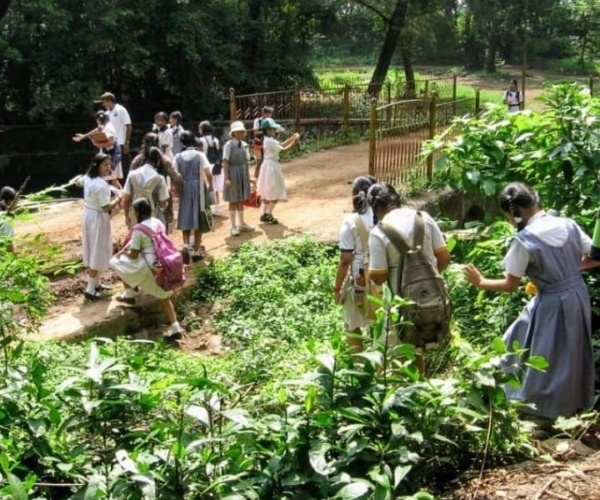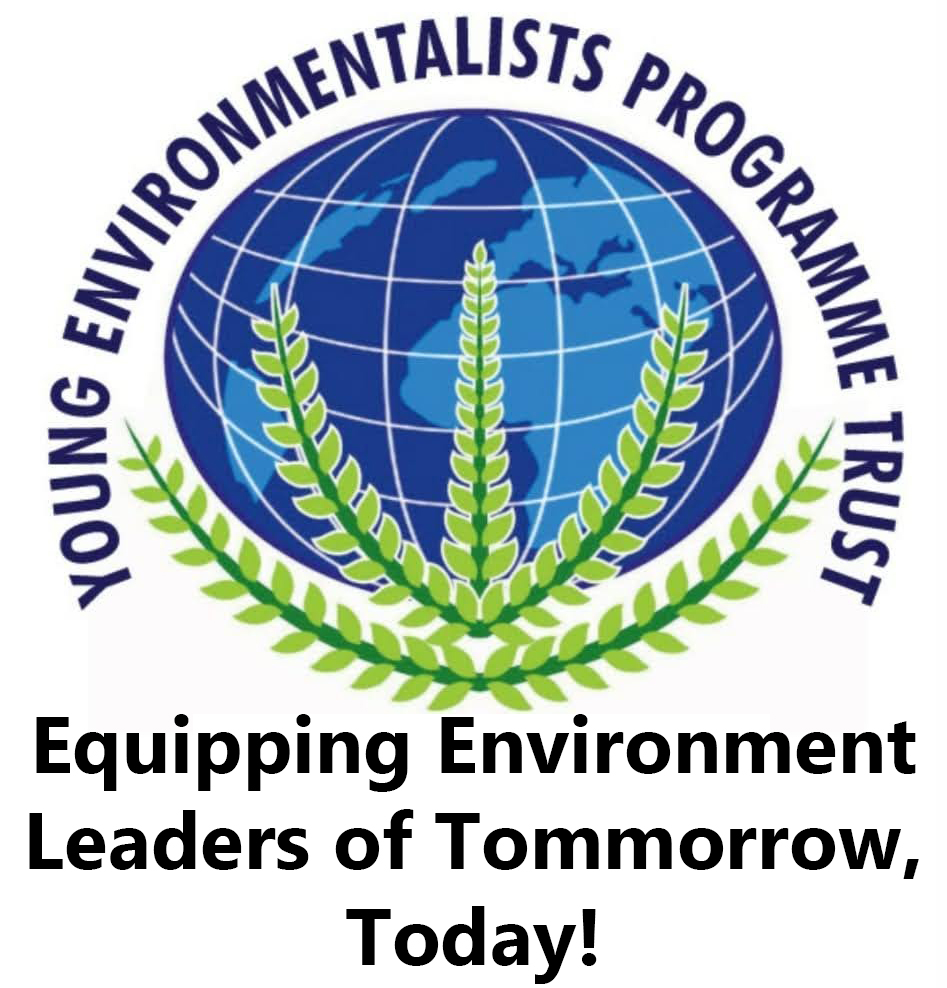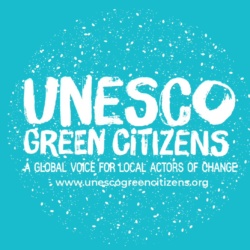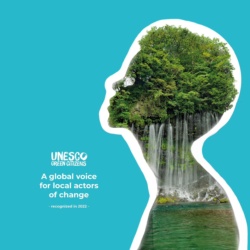Exploring the biophysical World.
“Forget not that the earth delights to feel your bare feet and the winds long to play with your hair.” Kahlil Gibran ~
Exploring one’s biophysical environments in one’s own backyard is important for encouraging imagination and creativity; cognitive and intellectual development and social relationships. You don’t have to dream about surfing on an exotic island when one talks about getting outdoors. Basically any green time is pure healing. I am not suggesting that nature’s healing power is only found in treks and the wilderness- no, but simply in the footpaths, nearby green parks and beach front walks as well.
Long term success can be reached while educating children and young adults about nature and getting them outdoors. Outdoor trails are a stress buster for sure and increase happiness through unstructured exploration and play-way methods. It is said that thirty percent of the world’s population is under the age of eighteen, and the young need to grow up knowing that nature is our friend rather than believing that we can continue to milk nature of all the resources and simply keep treading heavily on her, leaving behind heavy duty carbon footprints. Environmental Science [E.V.S.] as a subject has been discontinued by some academic streamlines and the repercussions on children are going to be deep as students may not get the relevant exposure to outdoor education. Thus, there are greater chances of a declining frequency of getting connected to the outside natural world. Digital entertainment takes precedence and occupies most of the day time and waking hours of the modern child, hence they are very likely to distance themselves from nature and get left behind where value for nature is concerned.
Hands-on field projects have the power to bring alive the environmental chapters, which can be fused into the current science classes. Sustaining valuable environmental topics and encouraging interactive discussions on the same can promote civic sense among young adults. Slowly but surely, participants can continue to experience the earth’s healing energies outdoors and value life sciences firsthand.

We can share our childhood memories about having a precious nature collection. Shells, twisted roots, catapults made of branches, all shapes and sizes of little rocks and stones, seeds, feathers, dried flowers and even dead snake skin. Remember, how many of us hoarded these natural items and would not part with them for the world. As adults and parents, we can follow the interests of our children as they delve into the joys of collecting these treasures from outdoors. We can encourage our children to deepen their understanding of how earth functions. There are so many reasons why we need to get our children and young adults outdoors. Besides promoting physical wellbeing, we must realize the simple truth that children simply love being outdoors.
‘Nature’ as a topic can be a great conversation piece to be enjoyed during meals at home. This gets the entire family involved- down from grandparents’ tales to little ones relating how their ladybird got away from the shoe box. This is a great way to compare the different things each one observed outdoors- the simple things, shapes, sizes, colors and other characteristics of natural objects. This is the start of learning to identify and classify species.
This helps in reconnecting with the fundamentals of nature without preaching. And vice versa, the young adults, juniors and children can talk to you, explaining what they see outdoors and a deeper sense of observation can be established.
Outdoor Environmental Education is need of the hour say Young Environmentalists Mentors.
“There is a pleasure in the pathless woods, There is a rapture on the lonely shore, There is society, where none intrudes, By the deep sea, and music in its roar: I love not man the less, but Nature more.” N George Gordon, Lord Byron from ‘Childe Harold’s Pilgrimage’ ~
Environmental education teaches people, how the Earth’s biological network works, and how we can create a more sustainable planet.
In almost all countries. our ancestors have traditionally worshiped elements of nature and have been dedicated to our environment. Down the ages, outdoor farming and outdoor lifestyle has been a way of life and not a special date with nature, as in the present time. Every effort hence must be made to help retrace and recreate more nature time’ outdoors. I was lucky to walk to school and back daily absorbing the greenery around- tall trees, wild weeds, streams and creeks, waterholes and rough roads. Nature’s lessons were all laid out to before me, right below my feet.
Today, field trip resources can enhance personality development and sharpen the senses. Outdoor activities encourage learning from the environment, enabling the development of skills, attitudes and values that the students gain from experiences in the environment. Research details assist studies about the environment, thus raising levels of knowledge, understanding, awareness and sensitivity to the environment and environmental issues. This fosters a keen sense of participation in each individual and gives them the opportunity to take action, and do something for the environment- either as an individual or a group. Involving students in activities that help to tackle an environmental problem can aid research leading to not only learning experience but self discovered solutions.
Research details assist studies about the environment, thus raising levels of knowledge. understanding, awareness and sensitivity to the environment and environmental issues. This fosters a keen sense of participation in each individual and gives them the opportunity to take action, and do something for the environment- either as an individual or a group. Involving students in activities that help to tackle an environmental problem can aid in improving the immediate environment plus a whole host of learning and personality development can arise as a result. A successful campaign gives the child a feeling of empowerment. Kick starting a campaign to keep the school learning alive, by involving a neighborhood community-is another great idea.

Apart from this, outdoor activities provide apt and ample opportunity to channelize the youthful energy of students to debate and solve important real-life issues. Out of the classroom education can involve activities in the actual environment- in the backyard and not always in outstation venues. Students thus, learn to deal with real situations and people more effectively, rather than only textbook knowledge. Field trips can be connected to the curriculum, to help students get a chance to discover the interdisciplinary linkages like say between life science and civic chapters.
Outdoor group activity builds essential skills like team spirit, listening, communicating and finding solutions that apply to all aspects of life. These are rather difficult to acquire from textbooks. Creativity blooms and critical thinking, problem solving, decision-making, negotiation and conflict resolution are built into the experience. Youth develop leadership qualities, self-reliance and responsibility and understand the importance of planning and systematic plan of action, by watching a green expert conduct herself or himself. This further helps the youth to create role models, which is so essential to a healthy growing up. Senior students most often pass down their project success stories to the juniors, thereby creating a unique bond of friendship and the priceless realization of valuing the environment.
Our aim –
• Environment education outdoors aims at creating a bridge between curriculum and green living habits.
• Basic details and understanding of the environment and its relationship with man and biodiversity; learning through an interactive way for students.
• Social and civic values which are in tandem with the environmental quality around us.
• Skills to solve environmental problems.
Ability to evaluate environmental measures and education programs.
• A sense of urgency towards the environment to solve environmental problems.
• To motivate the community to understand the interdependence of all life on this planet and how to sustain it through our green living habits.
• To increase people’s awareness of the economic, political, social, cultural, technological and environmental forces which foster sustainable development.
A sense of urgency towards the environment to
solve environmental problems.
• To motivate the community to understand the interdependence of all life on this planet and how to sustain it through our green living habits.
• To increase people’s awareness of the economic, political, social, cultural, technological and environmental forces which foster sustainable development by networking together.
Develops the essential skills of logic, writing, mathematics and science outdoors.
Subjects of ecology and sustainability are actually experienced in the muddy waters and forest filled trees.
• To nurture respect for the natural world.
• To understand and respect people of the land and those who provide food, shelter, energy in a sustainable way.
• To learn that recycling saves energy and money.
. To learn that everything which is eco-friendly may not be attractive, but it is essential to saving the planet & does not harm it.
• To inculcate a Green Discipline’within participants.






